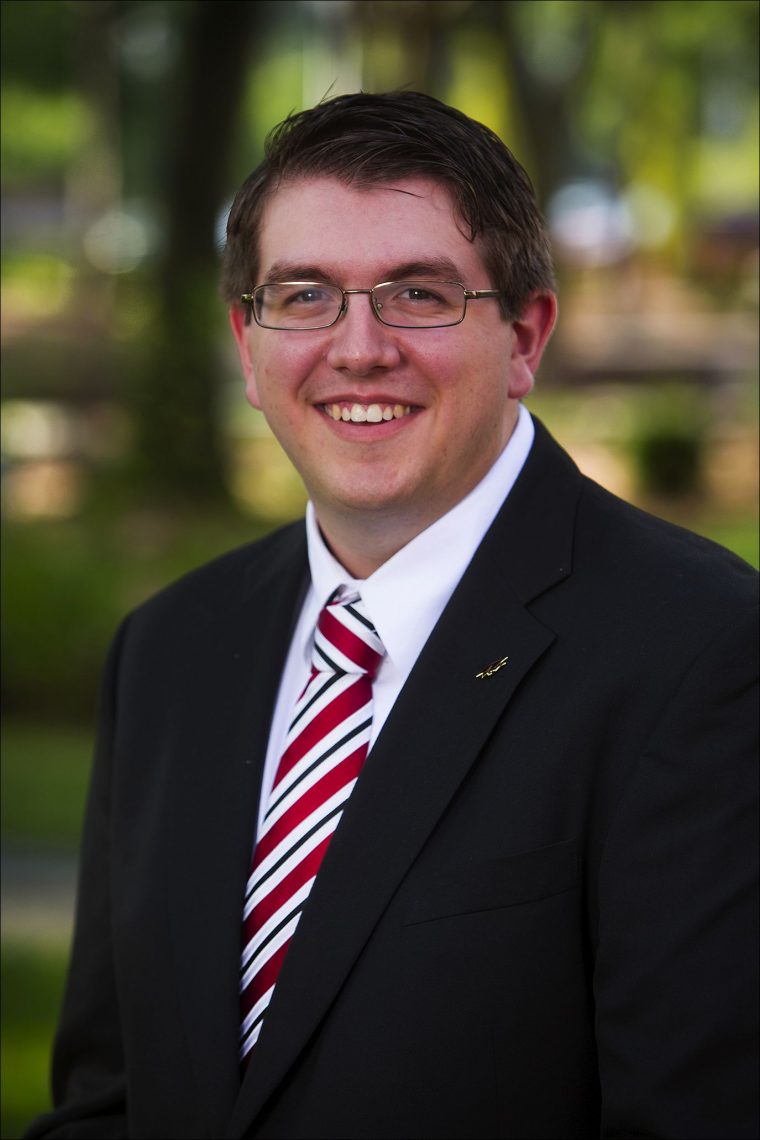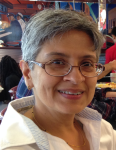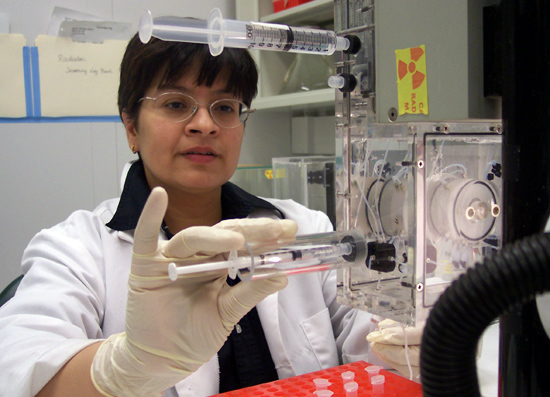Manju Hingorani, visiting scholar in molecular biology and biochemistry, and Brandon Case PhD '19 are co-authors of a new study published in Proceedings of the National Academy of Sciences USA in July 2020. The paper, titled “Recurrent mismatch binding by MutS mobile clamps on DNA localizes repair complexes nearby," reports novel findings about the mechanism whereby MutS protein triggers initiation of DNA repair. The research at Wesleyan was supported by NIH grant R15 GM114743 awarded to Manju Hingorani. Case is currently a postdoctoral fellow at Harvard Medical School. Jennifer Tucker, associate professor of history, discusses the role of material culture and visual…
Several faculty have recently authored or co-authored books, book chapters, and articles that appear in prestigious academic journals. BOOKS AND BOOK CHAPTERS Joslyn Barnhart, assistant professor of government, is the author of The Consequences of Humiliation: Anger and Status in World Politics (Cornell University Press, 2020). Susanne Fusso, Marcus L. Taft Professor of Modern Languages, is the translator of The Nose and Other Stories by Nikolai Gogol (Columbia University Press, 2020). Ruth Johnson, associate professor of biology, is the author of a book chapter titled "Adhesion and the Cytoskeleton in the Drosophila Pupal Eye," published in the book Molecular Genetics…
Molecular biology and biochemistry graduate student Brandon Case and Professor Manju Hingorani are coauthors of a study published in Nucleic Acids Research in March 2019. The paper, titled “The ATPase mechanism of UvrA2 reveals the distinct roles of proximal and distal ATPase sites in nucleotide excision repair,” reports new findings on how the UvrA2 protein uses its ATPase activity to probe DNA for damage lesions, such as those caused by UV radiation, and initiate nucleotide excision repair (NER). This DNA repair process corrects tens of thousands of lesions introduced daily into the human genome by UV rays and chemical agents. (more…)
Molecular Biology and Biochemistry PhD candidate Brandon Case and Emily Kessler '18 recently won poster awards at the North Eastern Structural Symposium (NESS) at the University of Connecticut on Oct. 28. Both students research the mechanisms of action of DNA replication and repair proteins with Manju Hingorani, chair and professor of molecular biology and biochemistry, professor of integrative sciences. Hingorani's DNA Lab investigates proteins responsible for DNA replication and repair. These proteins maintain genome and cell integrity, and their malfunction leads to cancer and other diseases. Case received an Outstanding Poster Award for his work, "Coordinated Actions of Four ATPase…
Three scholars from the Molecular Biology and Biochemistry Department are co-authors of a study published in The Journal of Biological Chemistry in August 2017. The paper is titled "Linchpin DNA-binding residues serve as go/no-go controls in the replication factor C-catalyzed clamp loading mechanism." The co-authors, Manju Hingorani, chair and professor of molecular biology and biochemistry, professor of integrative sciences; Juan Liu, research associate; and Zayan Zhou, PhD '13, performed the study on Replication Factor C (RFC) and proliferating cell nuclear antigen (PCNA), which are two essential proteins required for DNA replication and repair in all living organisms. The researchers found new…
Three faculty and one graduate student co-authored a paper titled “Statistical Coupling Analysis combined with all-atom Molecular Simulation Postulates Dynamical Allosterism in the MutS DNA Mismatch Repair Protein,” published in the March issue of the Journal of Physical Chemistry - Biophysics, published by The American Chemical Society. The authors include David Beveridge, the Joshua Boger University Professor of the Sciences and Mathematics, professor of chemistry, professor of integrative sciences; Manju Hingorani, professor of molecular biology and biochemistry, professor of integrative sciences; Kelly Thayer, visiting assistant professor of computer science; and molecular biology and biochemistry graduate student Bharat Lakhani. This project is…
Manju Hingorani, professor of molecular biology and biochemistry, professor of integrative sciences, recently completed a two-year tenure working for the National Science Foundation's Division of Molecular and Cellular Biosciences (MCB). Hingorani served as the program director of the MCB Genetic Mechanisms program. Hingorani worked with investigator-driven proposals submitted to both the Genetic Mechanisms and the Cellular Dynamics and Function programs. As a rotating program director, Hingorani managed proposal reviews and awards and responded to inquiries from principal investigators conducting fundamental research related to the central dogma of biology. (more…)
Manju Hingorani, professor of molecular biology and biochemistry, was featured in the “Coordinates” section of ASBMB Today, the monthly publication of the American Society for Biochemistry and Molecular Biology. Here, Hingorani briefly reflected on her marriage and career through a haiku. Her haiku read: Home is where the lab is, was, will be, my partner he’s home too – elsewhere. She added, “I’m a professor of biochemistry, and my husband is a pharmacologist in the industry. We’ve lived under the same roof for about seven of our 19 years as a married couple. But it has been a fabulous life,…
Manju Hingorani, professor of molecular biology and biochemistry, is the co-author of "MutL Traps MutS at a DNA Mismatch," published in the July 21 issue of the Proceedings of the National Academy of Sciences (PNAS). Postdoctoral researcher Miho Sakato also co-authored the article. DNA mismatch repair is the process by which errors generated during DNA replication are corrected. Mutations in the proteins that initiate mismatch repair, MutS and MutL, are associated with greater than 80 percent of hereditary nonpolyposis colorectal cancer and many sporadic cancers. The assembly of MutS and MutL at a mismatch is an essential step for initiating repair; however,…
Manju Hingorani, professor of molecular biology and biochemistry, was awarded a grant of $408,609 from the National Institutes of Health (NIH) to study the structure and mechanisms of DNA repair proteins responsible for fixing errors in the genetic code and preventing carcinogenesis. The three-year grant will fund PhD and undergraduate students' research on DNA mismatch repair (MMR). MMR corrects base mismatches and loops in DNA, and is therefore a critical guardian of genetic and cellular integrity. Defects in this essential, evolutionarily conserved DNA repair process cause high levels of mutations in the genome, which in turn lead to cancer. In humans, MMR…
Manju Hingorani, professor of molecular biology and biochemistry, is serving as the rotating program director at the Division of Molecular and Cellular Biosciences (MCB) at the National Science Foundation in Washington, D.C. Her rotation concludes in August and she will resume teaching next fall. The MCB supports quantitative, predictive and theory-driven fundamental research and related activities designed to promote understanding of complex living systems at the molecular, subcellular and cellular levels. MCB gives high priority to research projects that use theory, methods and technologies from physical sciences, mathematics, computational sciences and engineering to address major biological questions. Typical research supported by MCB integrates…
Manju Hingorani, professor of molecular biology and biochemistry, received a grant worth $324,127 from the State of Connecticut Department of Public Health on May 1





